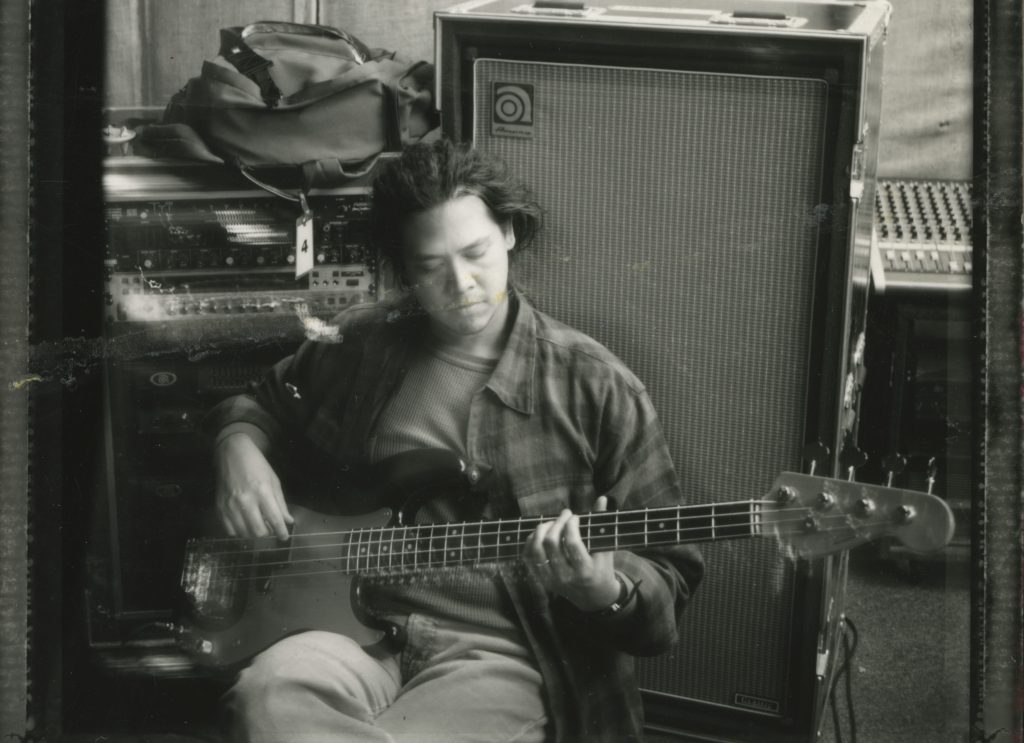What does it take to have a successful podcast these days? A committed schedule? High-quality audio? Thoughtful topics? All of that probably helps. But as the Whatever podcast demonstrates, all you really need for a hit show is a carefully curated selection of 30-second clips where you frame women as hopelessly dumb creatures and blast them off without context on Twitter.
Whatever bills itself as a dating podcast. And while it doesn’t rank in the charts on Apple Podcasts, the YouTube channel where episodes stream has 4 million subscribers, and individual videos usually get around 400,000 views each. Every week, host Brian Atlas—who previously used the channel for “prank” videos—gathers a selection of e-girls, models, trad wives, and your everyday college women for a four- or five-hour roundtable discussion of the pressing and controversial topics of the dating world.
Videos by VICE
Routinely, clips from the show go viral on Twitter or Instagram, gathering millions of views. There’s one promoted as “feminist hypocrisy,” where the host and a young woman argue about whether men are the truly oppressed gender, and one of another girl saying “um” 37 times as she laments the practice of “talking stages” in dating.
The big clip the other week was a video shared via tweet with the caption, “OnlyFans girl gets ROASTED.” Atlas asks two young women who are guests on the show how much they make as models on OnlyFans, and one, a woman named Nicolette Nicole, replies, “It’s kind of tacky to say exactly how much money you make.” A third woman jumps in: “It’s tacky to be on OnlyFans in the first place.” Nicole responds, “Everyone is entitled to their own opinion. That’s, like, bad vibes right there.”
It is hardly a “roast” and certainly not one that deserves an all-caps label. According to Nicole, the show reached out via Instagram and asked her to be a guest on the show, and she has appeared three times. Everything had been cordial until her final appearance when a fellow guest began insulting her “out of nowhere”—this, taken from nearly a dozen hours of footage featuring Nicole, was the basis for the Twitter clip. “After sitting and talking in circles for such an extended period of time, eventually someone on the panel cracks, and they can get a viral moment out of it,” says Nicole.
The bio for the podcast’s Instagram reads “🤩 CASTING WOMEN (DM us).” Although Whatever contacted Nicole first, other women likely applied for a guest spot. While neither the Whatever team nor Atlas responded to my request for comment, I’d guess they cast women based on their looks and the chances they will say something inflammatory or controversial. Of course, these guests are putting themselves in that position, and they bear some responsibility for all this. Even if they sound terrible, it’s still views and attention that might translate to a bigger following and the financial opportunities that can come from that.
And Nicole is transparent about this being the motivation behind her appearances. “I love that it’s going viral because it’s gained me peer support, social media followers, and OnlyFans subscribers, which at the end of the day is why I agree to go on any podcast—to increase my social media presence,” she says.
Even with the framing of her getting “roasted,” Nicole says, the response the clip generated has largely been positive. “I think it was definitely chosen to create controversy, which it did, but instead of getting the response they were expecting—which was to make me look dumb and shame me—I got a surprising amount of support from fellow sex workers and even people who are not in the adult industry,” says Nicole. “It made me proud of my industry that we all stick together. And I’m proud of how I reacted in that clip because I kept it classy instead of acting out like people probably wanted. Insulting someone for no reason like Mary did to me is much more ‘tacky’ than making a living off of doing something unconventional.”
Generally, audiences seem pretty suspicious of Atlas’s intentions, too.
While plenty of fans respond to Atlas’s posts with cry-laughing emojis, critiques are widespread. “Imagine if I invited a lineup of incels and asked them questions designed to make them/men look awful every single week and then clipped those interviews to further fuel the destruction of male/female relationships,” wrote @LibertyAnders on Twitter in response to a Whatever clip captioned “Feminist gets TRIGGERED.” Atlas may not have some master plan of worsening relations between genders, but @LibertyAnders still makes an important point: The purpose of the show is to drum up controversy, not for the sake of doing the hard work of getting to the bottom of what’s happening in the dating world so that people can live better, happier lives but seemingly to sow further discontent between all parties for the sake of Patreon subscriptions, YouTube ad revenue, merch sales, and tips.
Atlas’s previous YouTube prank videos often highlight this divide, as well. In addition to videos like “Drowning Baby Prank,” the channel features several so-called “social experiments” where he and colleagues approach women in public or on Tinder to ask for sex and are mostly met with polite rejection (and some where women do the same to men). One popular video, titled “Trolling Prostitutes In Amsterdam’s Red Light District,” features Atlas essentially wasting sex worker’s time by asking them how much it would cost for them to watch him cry in a corner, perform a “Dirty Sanchez,” or play chess with him.
While Whatever has pivoted from pranks to livestreams with infuriating clips—and found some success in doing so—they are hardly the only content creators to take up the effort. In fact, creators are increasingly generating such clips without actually having a podcast at all. In late March, for example, a podcast-esque clip of a woman explaining how she makes her man “nut” at least seven times a day garnered 50 million views on a single tweet—but as Ryan Broderick explained in his Garbage Day newsletter, it appears that no such podcast exists. She simply recorded the clip to look as though it came from one—speaking into podcast mics and taking on the “pulled from the middle of a conversation” affectation—and shared it herself.
Is there something about the podcast format that makes us more gullible? Axios recently reported that among Americans who listen to podcasts, 87 percent expect the information they hear to be accurate, and around 55 percent say they trust the news they hear from podcasts. It’s as though we forget that literally anyone can have a podcast—or even just make it look like they do. There are no prerequisites, no need to prove that you are an authority on a particular subject matter. You can say whatever you want into a microphone, and just by virtue of that microphone being present, people are more inclined to listen to you.
Not that this is entirely new: Whatever is employing the same technique of bringing unique voices together to say something controversial that has made shows like Howard Stern thrive for decades—just without the anchor of an iconic, engaging host like Stern. For better or worse, in our current social media climate, Whatever is proving that the old standards of personality, perspective, and experience are not even necessary. Instead, you just need a half-minute video, a caption with two capitalized words, and a desire to fuel the gender culture war.
More
From VICE
-

Fallout 76 Burning Springs splash page. -

All Pictures by James Minchin III -

Screenshot: Treyarch -

Battlefield 6 key art.
